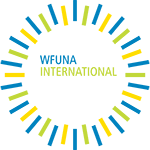Universal Health Coverage (UHC) has its main objective that all people receive quality essential health services, including Primary Health Care, throughout their lives without financial difficulties. Its goal is to promote Health as a universal good; accepting that Health is a basic human right.
Actively assisting with its implementation can result in significant and long-lasting changes. These adjustments would include a decline in fatalities attributable to preventable diseases and a swift improvement in the caliber of medical interventions. Implementing patient-centered integrated care and establishing strong financial structures are essential steps in realizing this ambition.
Primary health care is a fundamental building block of Universal Health Care. It serves as the first point of contact between individuals and the healthcare system at the community level. It is therefore a critical component in not only treating diseases but also preventing them and promoting overall health. At the same time, it also plays a vital role in providing an early diagnosis of a wide variety of health issues which can prevent more costly treatments that would be needed when they are not diagnosed early. When countries invest in making comprehensive community-based healthcare services accessible to all, particularly in underserved and vulnerable populations, they will be in a better position to achieve Universal Health Coverage goals.
The accessibility of the health system has been compromised since the Covid-19 pandemic. Shortages of healthcare professionals and services led to failure in meeting the needs. Governments have also struggled to balance rising prices and escalating health requirements. However, this global crisis is also a chance to build new resilient primary health care systems that will contribute to achieving Universal Health Coverage’s main objective which aims to build a healthy future for all.



